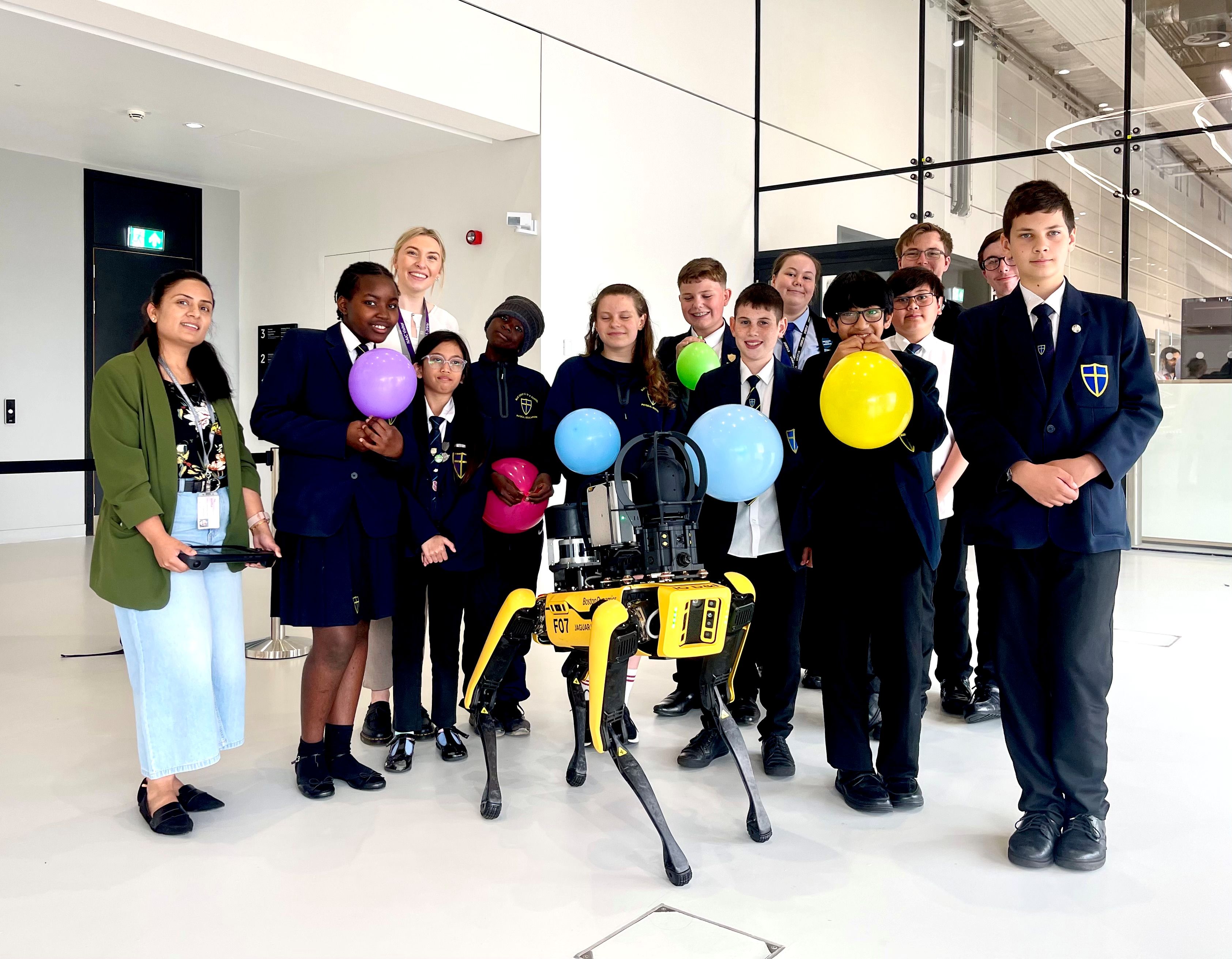On Wednesday 16 July 2025 pupils and their teachers from schools and colleges across the West Midlands converged on the National Automotive Innovation Centre in Coventry to celebrate the impact of a programme that is inspiring young people to learn about engineering and the rewarding careers it offers.
Launched in 2020, with funding from the Department of Science, Innovation and Technology (DSIT) for an initial five years, the Lord Bhattacharyya Engineering Education Programme aims to widen participation in engineering and attract more young people to consider careers in engineering, particularly those from low-income backgrounds and other underrepresented groups.
Led by the Royal Academy of Engineering in close partnership with WMG, University of Warwick, the programme provides a comprehensive package of engineering-focused science, technology, engineering and maths (STEM) support, including grants to schools and colleges, teacher networking and CPD opportunities, funded industrial secondments, and individual FE and HE student scholarships.
At the celebration event in Coventry schools and colleges participating in the programme demonstrated to invited guests some of the projects that have been supported by the Programme and helped to enrich STEM teaching and learning. Those with scholarships will be able to network with their peers and with representatives from local industry.
The Programme was created as a tribute to the late Professor Lord Kumar Bhattacharyya Kt CBE FREng FRS, a renowned engineer, academic, educator and government advisor who established WMG, University of Warwick, in 1980. Since 2020, almost £200,000 has been awarded to support engineering-focused activities involving over 50,000 pupils. The programme has also provided 139 scholarships to support learners studying STEM and engineering subjects post-16, as well as awarding 38 bursaries, each worth £15,000, to help learners continue engineering in Higher Education.
As a result of participating in the Programme, Ernesford Grange Academy in Coventry has seen the best uptake in STEM and Design Technology in a decade. At Colmers School in Birmingham, more girls than ever have taken up the subject in Year 10, and the school’s Level 2 course was oversubscribed by two full classes. The school’s first ever Year 12 student to be awarded a bursary, is now on track for a career in water treatment engineering. Another went on to apply for a university bursary — the first student from the school ever to do so.
Lynda Mann, Head of Education Programmes at the Royal Academy of Engineering, said of the celebration: “Results from the past five years of the Lord Bhattacharyya Engineering Education Programme have been truly encouraging. Teachers report increased confidence in delivering lessons about engineering, students have a better understanding of the subject, and more of them are choosing the GCSEs and post-16 courses that open up routes into rewarding careers in engineering and technology."

The Programme will continue beyond this initial five years and will be re-launched by the Academy in the Autumn in an enhanced form under its This is Engineering: Schools initiative, which takes a place-based approach to developing a suitably skilled UK engineering workforce to meet the challenges of the 21st century.
Lynda Mann continues: “Our aim is that young people from all backgrounds across the West Midlands understand the opportunities and rewarding careers engineering and technology offer and that businesses in these sectors are able to access the home-grown talent and skills they need in order to drive new economic growth and prosperity.”
Today’s UK engineering profession faces a significant shortfall in numbers, skills and diversity. To help address this, participation in STEM subjects needs to be widened – by gender, geography, ethnic origin, and socioeconomic grouping. Socio-economic grouping is important because deprivation is a key indicator of low attainment in education. Areas in the West Midlands with high socioeconomic disadvantage also have a percentage of pupils achieving five or more GCSE qualifications that is lower than the national average, particularly in STEM subjects. STEM qualifications can have an important role to play in social mobility because they are highly sought after by employers.
Notes for editors
WMG, University of Warwick, is a world leading research and education group, transforming organisations and driving innovation through a unique combination of collaborative research and development, and pioneering education programmes.
As an international role model for successful partnerships between academia and the private and public sectors, WMG develops advancements nationally and globally, in applied science, technology and engineering, to deliver real impact to economic growth, society and the environment.
WMG’s education programmes focus on lifelong learning of the brightest talent, from the WMG Academies for Young Engineers, degree apprenticeships, undergraduate and postgraduate, through to professional programmes.
An academic department of the University of Warwick, and a centre for the HVM Catapult, WMG was founded by the late Professor Lord Kumar Bhattacharyya in 1980 to help reinvigorate UK manufacturing and improve competitiveness through innovation and skills development.

